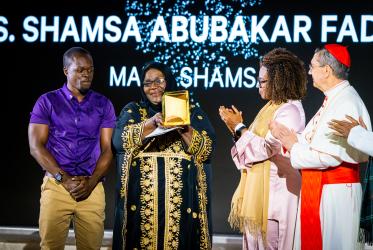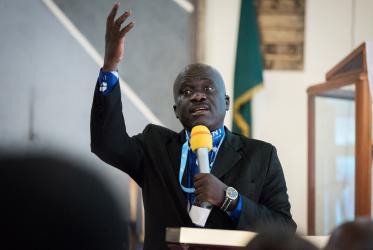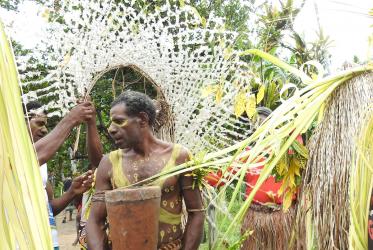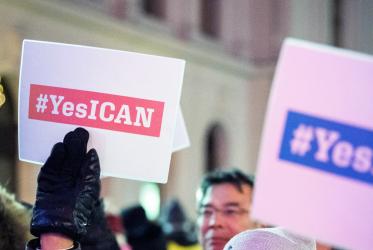Displaying 1 - 20 of 23
Kenyan woman peace-builder wins human fraternity award
14 February 2023
Young Africans are eager to grapple with challenges
09 January 2020
In Fiji, young people ‘walk the talk’ with advocacy
12 September 2019
Common prayer in Geneva responds to acts of violence
16 November 2015












